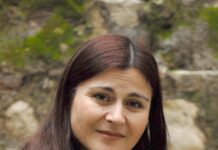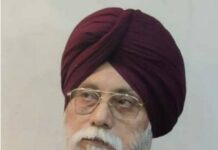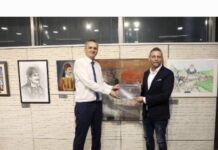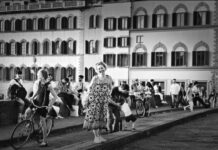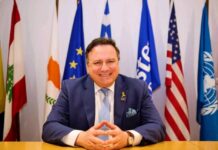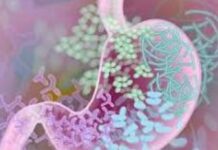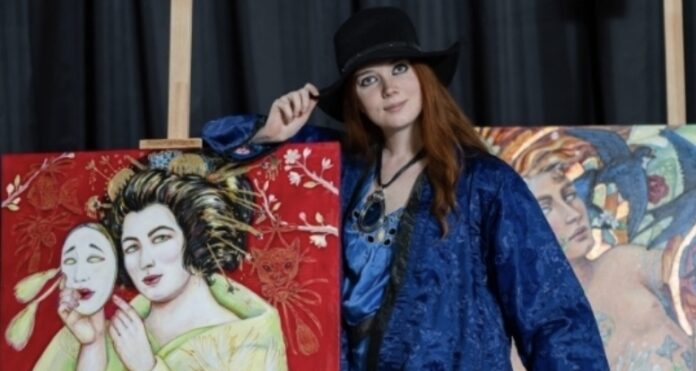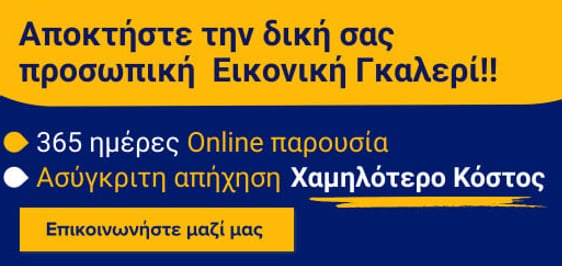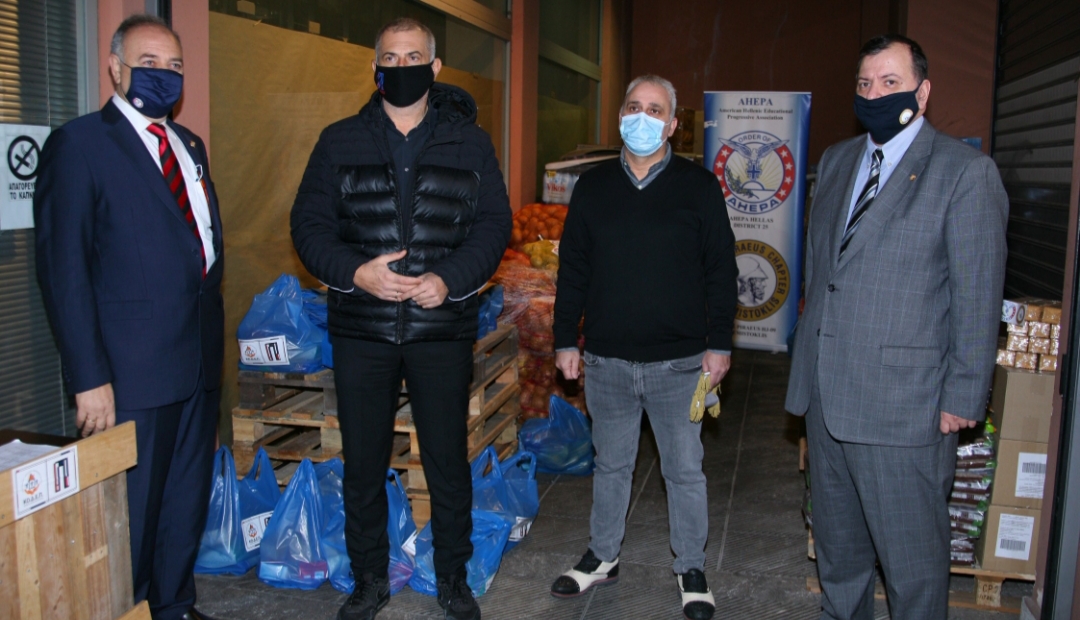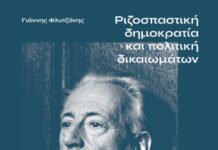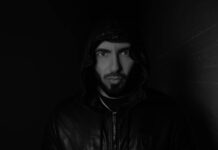Συνεντεύξεις με ξένους λογοτέχνες. Σας παρουσιάζουμε την Stefania Danilova
Επιμέλεια συνέντευξης: Εύα Πετροπούλου Λιανού
Μετάφραση: Alexander Kabishev (Ρωσικά)
Stefania Danilova: Stefania Danilova (16.08.1994, St. Petersburg/Moscow) is one of the most sought-after poets of the XXI century, combining development on the Web, in magazines and on the stage, winner of various literary awards, author of 20 books, founder of the first production center for poets “Vsempoezii”. She performed in Athens and Thessaloniki in 2015. The poems were translated into Greek by Dimitris Triadafillidis.
• Do you remember your first poems? What inspired you? Which poets, writers have had the strongest influence on you, why? My first pen tests were at the age of three and were dedicated to my beloved cat Boy with galactic eyes. I was a child of early development, the so-called “indigo”, and I was attracted to creative self-expression right away. However, she consciously embarked on a poetic path at the age of 17: her first concert, her debut book. Among my landmarks are poets with a difficult fate. Textured. Uncomfortable. Eternal contemporaries. This is Tsvetaeva, who is completely unsuited to the mundane routine, who writes with pure space; and Brodsky, from whom we should all learn immunity to someone else’s opinion; and Sylvia Plath, who is not afraid to discuss with her father’s figure in poetry, while any statements to parents, except gratitude, are perceived quite sharply … And, of course, Pushkin. I adore Pushkin. He was the only one who managed to conquer time not only with his poems, but also with his manifestations in society, to create such a Molotov cocktail from his gift and communications, which has been burning for centuries and does not think of going out.
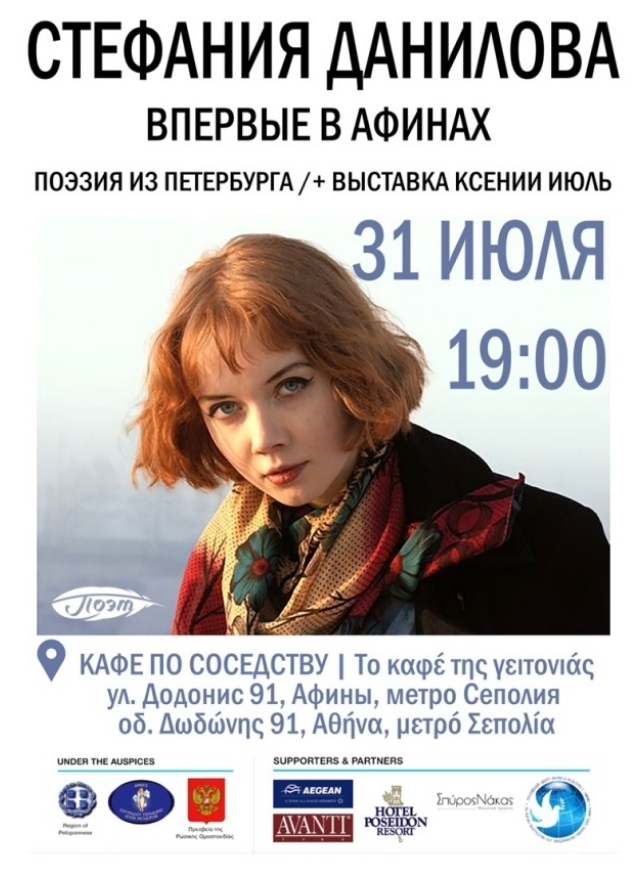
• What kind of literature do you consider yourself to be, and how do you see it in the XXII century? By education, of course, I have a master’s degree in philology, and I am professionally engaged in literary studies, but I am sure that a poet cannot and should not be “self-aware”. I live and create now. For me, there are several interesting scientific papers: Doctor of Sciences Olga Valikova even received some solid prize in Bulgaria for her. Here they write something about me, somehow they see me, and I’m just grateful. It is impossible to influence such things in any other way, except by your being, creativity. As for the literature, I give the following forecast: full clustering awaits us. The time of “widely known in narrow circles”. There are many, many different parties, associations, unions, telegram community, local leaders. This is what is happening now: here is the literary and musical festival “Nikafest” by the beautiful poet with a Crimean soul Niki Batchen, here is “Mayfest” – the festival of poet, cultural blogger and publisher Dana Kurskaya, here is the community around the Arkady Dragomoshenko Award… these are worlds that are unlikely to ever intersect or make friends, but they are the litprocess, including. Thousands of small kingdoms, and there will be no single ruler over them. A kind of archipelago of small islands in warm waters. The role will be played not so much by the text as by the personal brand of a single “king”. Even if some new player in the literary process simply rewrites the alphabet anew, but does it with a spark, there will be someone to go after him.
• We know that you have a lot of projects! What are these projects? How can I take part in them? I created a Brodsky contest with friends of the poet himself. She brought people from overseas to learn how to shoot poetry clips and write scientific articles about poetry. United 9 St. Petersburg parties for the sake of saving the Children’s Sunday Center of the Red Cross from closure. My biggest fest so far, no one has been able to beat the number of applications sent – 4000. He walked from the village of Novaya Guta to the beach in Arambol. I attached bags of 3-in-1 coffee to the special issue of the philology magazine published by me for the Day of the Philologist and Oriental. She taught poetry from the library on the outskirts of St. Petersburg to federal workshops. If I was fired up by some topic, I easily turned it into a festival, just because I could and wanted to. Tips and hints to other poets I have never considered any special merit, this is a natural process, how to breathe. At the end of 2022, I simply brought all my art projects to a single denominator: the production center “Vsempoezii” (vk.com/vsempoezii.prod)
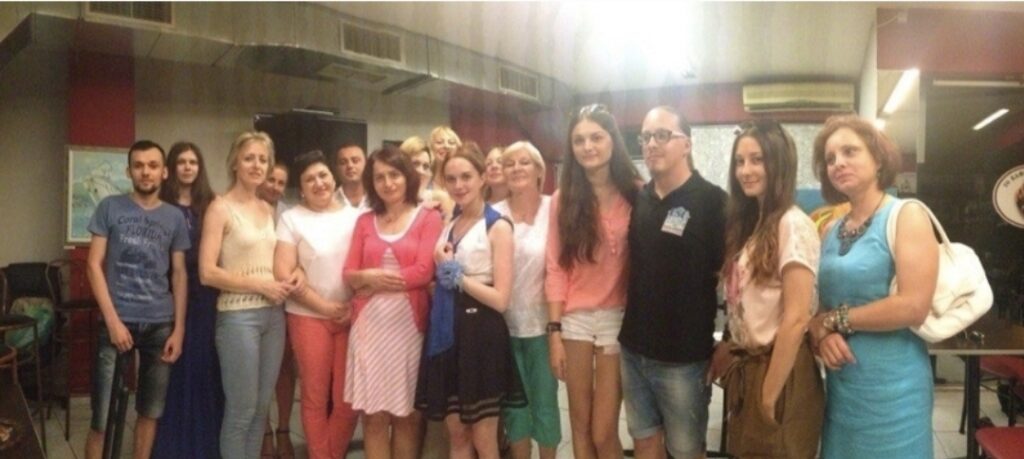
• What distinguishes you from other authors and poets of modern Russia? How do you see your future? I think what distinguishes me is that I have always been both a poet and a producer together, and these two facets nourish each other. I have a lot of vision, a good taste for poetry and cool projects, I can see the strengths of both the text and the person. There is such a word: star, in show business, in the literary process. I prefer the path of “stars in a constellation”, to shine together with bright guys like you – more effective and interesting than sad and alone. I am the person “who dresses himself in a tornado in the morning, from whose candle hundreds of candles are lit.” And my fire is able to help those who are incredibly talented, but are afraid, constantly afraid, first of all, of the span of their own wings. Having come from a very traumatic creative youth with bullying, devaluation, a culture of cancellation and, as a result, a dead self-esteem, unfortunately, I know what I’m talking about, how it works and whether it can be helped.
• Your works have been translated into many languages. What makes them interesting to readers around the world? I had a chance to perform in Russia, Ukraine, Greece, Belarus, India, Lithuania. My poems have been translated into English, Spanish, German, Ukrainian, Greek, Belarusian, Hindi, Esperanto, and recently a wonderful Turkish translator came to me. It is always interesting to see which text is chosen for translation in which country. It is noteworthy that the popular poem “Take me, the sea!“ now exists in several different languages. The translators chose it themselves. Probably because the main character – tired, disappointed in life, begging the sea to take him away and bring him back – lives on every coast, regardless of what language they speak there.
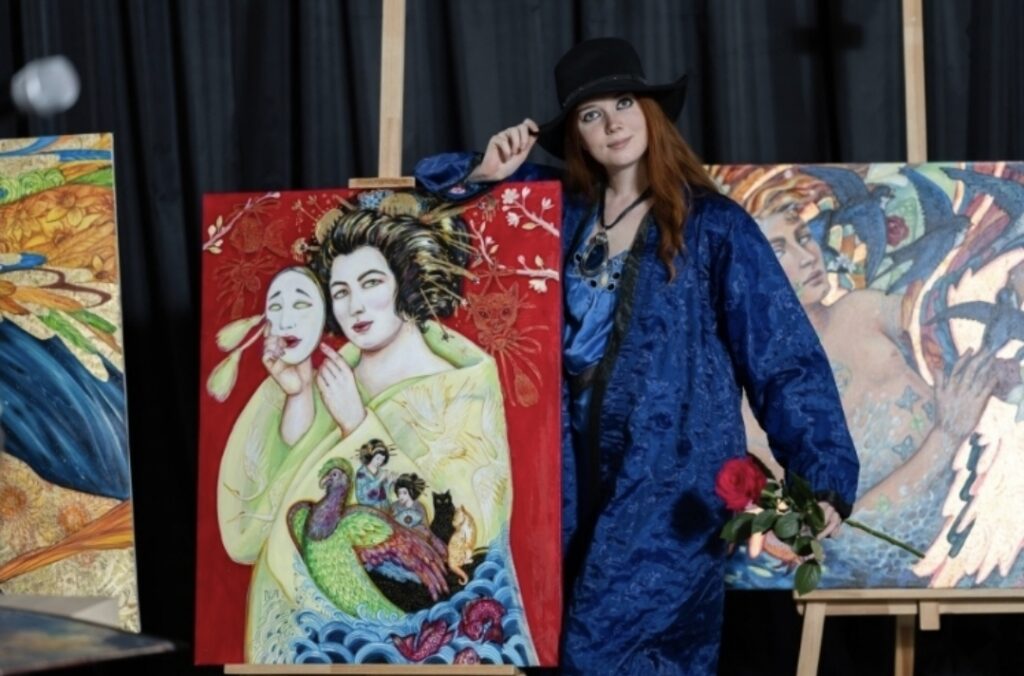
• Which of your poems is the most precious and closest to you? In the context of this magazine, since there is also a Greek audience here, I will cite an old poem with a translation by Dimitris Triadafillidis. It was 2015, stunning Athenian hollyhocks, dazzling white houses with blue doors, I performed in Athens and Thessaloniki and felt that something right was happening.
Κι αν στ’ αλήθεια θα μπορούσες για κάτι
Μόνος σου ν’ αποφασίσεις μόνος σου, τότε, δικαίως,
Δεν θα είχες αυτά τα χέρια και τα πόδια,
Τις ζάρες στο κοστούμι, τα κοκάλινα γυαλιά
Και στο σταυροδρόμι τριών δρόμων προς τ’ αριστερά
Εσύ θα έστριβες δεξιά
Και θα ήσουν ευτυχισμένος που είσαι μόνος.
Θα ήξερες ότι όλα τα δύσκολα είναι μπροστά μας,
Το καλό βρέθηκε στις ντουλάπας χωρίς τη Νάρνια,
Θα δημιουργούσες κάτι από το οποίο όλοι θα εκστασιάζονταν
Και δε θα ήσουν υποχρεωμένος σε κανέναν.
Θα ερωτευόσουν εκείνο που δεν πεθαίνει,
Θα είχες φιλία με εκείνους που προδίδουν εύκολα –
Και μπορεί όλα να τα έκανες ανάποδα.
Μη πιστεύοντας σε λόγια και θαύματα
Πιστεύεις πως ο πλανήτης σου είναι το γραφείο.
Λες πως μόνος σου αποφάσισες για όλα.
Εσύ είσαι ο οργανισμός και η υπόφυση του εαυτού σου.
Τρέχουν να σε προλάβουν: το δάκρυ σου
Και το προτελευταίο τραίνο που πηγαίνει στη ζεστή πατρίδα σου.
Να λοιπόν που το κομάντο μου
Να λοιπόν που το άγημά μου συγχωρεί
Άλλη μία από χιλιάδες υποθέσεις.
Μετάφραση από τα ρωσικά Δημήτρης Β. Τριανταφυλλίδης ©
***
And if you really could
decide something on your own, then, really,
you wouldn’t have these arms and legs,
suit wrinkles, horn rims,
and the intersection of the left three roads
you’d turn right
yourself and be happy to be alone.
You would know all the bad things in advance,
the good ones – you would find them in closets without Narnia,
you would create something from which everyone is rushing
and I wouldn’t be grateful to anyone.
You would fall in love with something that won’t die,
make friends with someone who betrays mediocre –
or maybe did the opposite.
Not believing words and miracles,
you believe that your planet is an office.
You say that you decided everything yourself.
You are an organism and your own pituitary gland.
They are running a race: your tear
and your penultimate train to a warm land.
But here’s another one of a thousand hypotheses coming down to you from my landing.
***
И если бы ты правда что-то мог
решать самостоятельно, то, право,
ты не имел бы этих рук и ног,
морщин костюмных, роговой оправы,
и перекрёсток левых трёх дорог
ты сам бы разворачивал направо
и был бы счастлив тем, что одинок.
Ты знал бы всё плохое наперёд,
хорошее – нашёл в шкафах без Нарний,
создал бы что-то, от чего всех прёт
и не был бы кому-то благодарным.
Ты бы влюбился в то, что не умрёт,
сдружился с тем, кто предаёт бездарно –
а может, сделал всё наоборот.
Не веря словесам и чудесам,
ты веришь, что твоя планета – офис.
Ты говоришь, что ты решил всё сам.
Ты – организм и сам себе гипофиз.
Бегут вперегонки: твоя слеза
и в тёплый край твой предпоследний поезд.
Но вот тебе спускает мой десант
ещё одну из тысячи гипотез.





